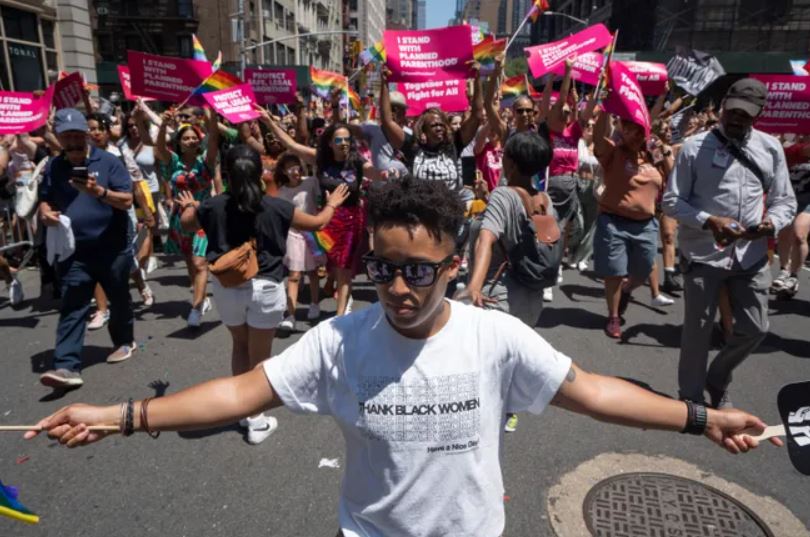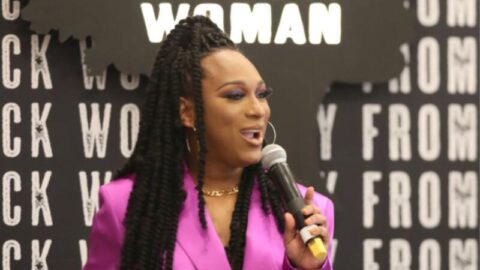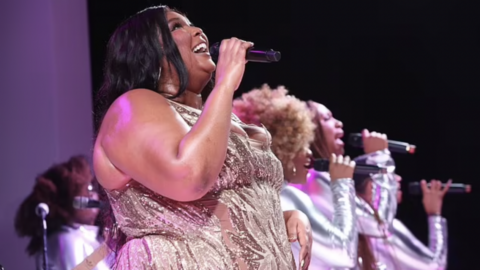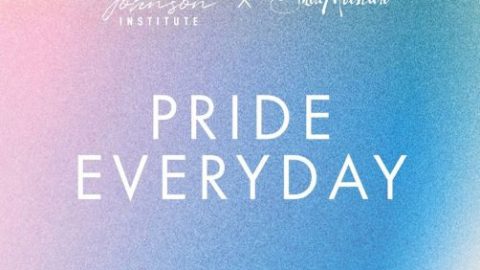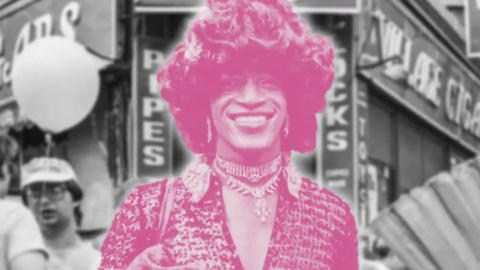As seen on Democratic & Chronicle.
Jena Jaffe and her wife considered getting their estate documents arranged for a few years. But she finally called a lawyer and said she needed it done on Friday, just after the U.S. Supreme Court announced its decision to overturn Roe v. Wade. Jaffe, an attorney and founder of Connecting Rainbows, said web traffic has spiked 400% on her website, where she offers advice and maintains a directory of LGBTQ-affirming lawyers, since the ruling came down.
The ruling ending the constitutional right to an abortion served as a reminder that freedoms granted by court rulings — like the 2015 federal legalization of same-sex marriage — are not laws, but decisions that can be overturned at any time. While the Court noted its recent decision on abortion did not signal the end of other Court-ordered protections, Justice Clarence Thomas wrote in his concurring opinion of the Roe decision that the court “should reconsider” rulings that codified contraception, same-sex relationships and same-sex marriage.
For LGBTQ advocacy groups, next steps include rallies, education and voting to secure LGBTQ rights. For individuals, the near future will involve planning how to protect their relationships and families.
No rights feel safe after the U.S. Supreme Court overturned Roe v. Wade on Friday, said Matt Haslam, the president-elect of Pennsylvania Equality Project. The decision showed the U.S. can roll time backward, and freedoms allowed LGBTQ people can “be reversed at any moment,” he said.
It’s not something that would happen overnight, though, Jaffe said.
“The Supreme Court can’t just pull out a ruling on nothing,” she said. “Our right to marry federally is not going anywhere yet. Should we be concerned? Yes, but you do not need to rush to the courthouse.”
Supreme Court overturns Roe v. Wade, eliminating constitutional right to abortion
LGBTQ couples take action after ruling
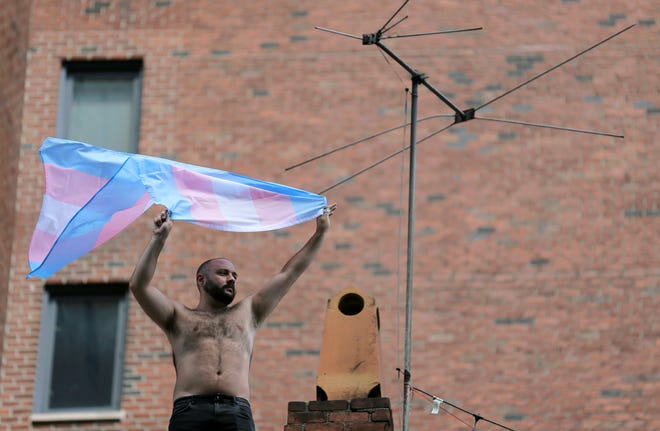
The most common question Jaffe fielded from LGBTQ couples since Friday is on whether they need to get married immediately, before decisions they anticipate happening become reality. Married LGBTQ couples express concern about the validity of their marriage and federal tax benefits they receive as married couples. Mostly, people are worried about maintaining their legal rights as couples and parents, Jaffe said.
Jaffe and her wife, who live outside of Philadelphia, started the process after the ruling to draft healthcare proxy, power of attorney and living will paperwork. Those documents protect certain rules and rights married couples have, such as health decisions or arrangements after one’s death. Jaffe also had to consider her two young children. While same-sex marriage and relations were explicitly mentioned in Thomas’ opinion, Jaffe stressed people should ensure their parental rights are protected as well. Same-sex parents should not rely on their birth certificate, she said, rather the parent who did not give birth will need to adopt their child to ensure their parental rights.
Transgender people watched their gay, cisgender counterparts win victories in the fight for adoption rights, said Elle Moxley, the founder and executive director of the New York-based Marsha P. Johnson Institute. Meanwhile, society’s understanding and awareness of transgender people, especially Black trans people’s “reproductive justice was already so limited in its scope,” she said. There already was so much at stake for the community, she added, as inadequate access to needs like affirming health care has always existed for Black trans people.
The recent Roe decision “further limits the imagination and the possibility for so many people who would love to have the opportunity to family plan,” Moxley said. She explained Black transgender people struggle to access to the first steps in family planning — fertility clinics and sperm storage banks — and face overcriminalization. People who can get pregnant, include transgender men and nonbinary people, who are often left out of abortion access discourse and what’s often referred to as “women’s” rights.
Bills have cropped up in several states, including Pennsylvania, that would consider a fetus a person at moment of conception. Jaffe explained that complicates access to surrogacy for LGBTQ couples who pursue that path to parenthood, as states must consider legality around implanting an IVF-created embryo.
Earlier Supreme Court decisions Justice Thomas mentioned in his opinion shared a central concept: fundamental privacy. These rulings — Griswold, Lawrence and Obergefell — allowed married couples to buy contraception for same-sex couples to be intimate without authorities infringing upon their personal spaces, and granted LGBTQ couples the right to marry. All of these cases granted people rights to make decisions about their bodies – an ability Black transgender people have fought to even be considered for, Moxley said.
This year, along with states implementing strict abortion access laws, policies went through state houses to limit access to gender-affirming care, especially for young people. In Texas, an order allows child abuse investigations into parents and health care providers who offer or support gender-affirming care, like puberty blockers, for children. Transgender people already fear or have faced discrimination in healthcare settings, according to the most recent U.S. Transgender Survey.
If the U.S. Supreme Court strips away LGBTQ rights on a federal level, it would have immediate impacts on states like Pennsylvania that currently protect same-sex marriage. People have sued the federal government to appeal the state’s reversal of its same-sex marriage ban. Haslam, of the Pennsylvania Equality Project, fears that, with that right taken away by the High Court, people could win these lawsuits and lead officials to overturn same-sex marriage locally.
Pennsylvania Equality Project staff focused advocacy primarily on marriage equality when the nonprofit launched in 2011, three years before a district court legalized same-sex marriage in the state. The U.S. Supreme Court extended that right nationwide in 2015 with its ruling on the case Obergefell v. Hodges.
Seven years later, same-sex marriage is yet again a concern on the project’s radar.
“These court cases happen, and sort of our most loyal subscribers say ‘well, we’re kind of getting what we’re asking for here, we’re gaining equality as time goes on,’” Haslam said. “Then something like this past week with Roe v. Wade [being overturned] happens and it puts immediate jeopardy on everything else.”
Moxley agrees a lot of rights are at stake following Friday’s decision. But Black transgender people, the community her nonprofit supports, has “always been clear about the bigger picture … for what’s at stake, what doesn’t exist, and what we are fighting for,” Moxley said.
‘We have to get out there’
LGBTQ people included in this story used the word “community” often. Over the weekend, when many of the nation’s largest Pride Month festivities occurred, the sense of LGBTQ community was clear. People filled the streets for annual Pride parades, donning rainbow flags as capes, but the tone wasn’t as celebratory as years past. People wielded signs boasting statements like “abortion access is a queer issue.” LGBTQ people of all rainbow stripes, allies, people who declared their past abortions, linked arms in solidarity hours after the Supreme Court’s decision.
It won’t be the last time LGBTQ people rally to advocate for the rights they won not long ago.
Haslam urged LGBTQ people to come together and “ramp up our advocacy.”
“We have to get out there and we have to protest peacefully, we have to help our audience understand how easy it is to vote. … Pennsylvania Equality Project believes the way to have true equality is with everyone’s say,” Haslam said.
Moxley turns to the wisdom of her organization’s namesake, Marsha P. Johnson, to think about next steps, especially during Pride Month. The first Pride events were protests in New York City, where Johnson played a major role in the LGBTQ rights movement over 50 years ago. Moxley believes LGBTQ communities must return to this activism, to addressing “what needs to be undone, brick by brick.”
Moxley is hopeful, though. She’s sees “another side” to what many have painted as impending doom for reproductive and LGBTQ rights.
“We can only go forward,” Moxley said. “There’s a bigger picture and there’s no law or government that will ever minimize my bigger picture.”
Lauren Sforza contributed reporting for this story.
Sammy Gibbons is a culture reporter for the USA TODAY Network’s Atlantic Region How We Live team. Email: sgibbons@gannett.com | Twitter: @sammykgibbons. For unlimited access to the most important news, please subscribe or activate your digital account today.

